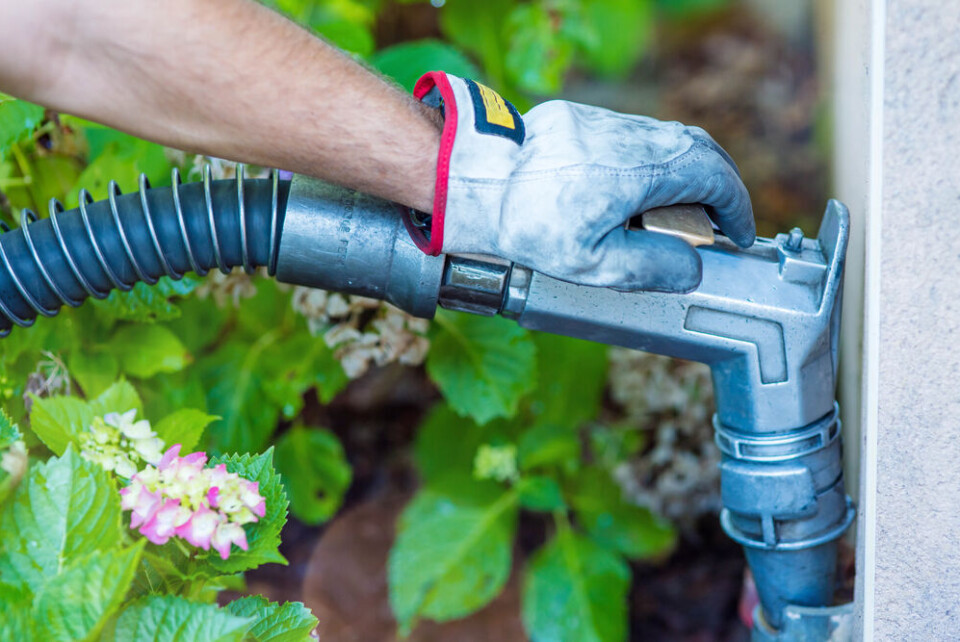-
White storks make strong return in France via nest ‘platforms’ and clipped wings
The Ligue pour la Protection des Oiseaux shares the conservation challenges in saving these birds from extinction
-
Hosting scheme in south-west France lets newcomers sample lifestyle
Households in nine Dordogne communes volunteer under Mes Nouveaux Voisins scheme
-
French boulangeries demand right for staff to work on May 1 so they can open
Artisan bakery owners can work but employees cannot, while certain industrial bakeries are allowed to remain open with workers
Fuel oil aid for homes in France: Who is eligible for the €100-200?
Cheques will be sent to eligible households from November onwards. We explain who is eligible, how to work out what you will receive, how to use the money, and when you can expect it

People in France that use oil as their house heating fuel are set to receive a ‘chèque energie’ (energy voucher) of €100 to €200 from the government from November 8.
Who is eligible for the cheque?
The government confirmed the aid would be available for households that have not benefited from other measures to help with the cost of rising energy prices.
Public Accounts Minister Gabriel Attal said: “In the summer, Parliament voted for €230million to help the households concerned, who have not been able to benefit from the shield put in place for other sources of energy.”
The government has said that 1.4 million households, out of the 2.8 million that heat with oil, could benefit from this cheque. Revenue from 2020 will be taken into account for the calculation.
The amount received will depend on your income, and how many dependents are living in your home. For example:
-
€200 for a single person at the minimum wage (Smic*) with at least one child
-
€100 for a single person earning the minimum wage (Smic*) without children
-
€100 for a single person with two children earning about 3,000 net per month
Mr Attal said: “On the website chequeenergie.gouv.fr, a calculator will enable you to see if you are eligible.”
The calculator also helps show whether you will receive €100 or €200.
*Smic is the French acronym for the minimum wage (salaire minimum de croissance). In 2022 it is now at €11.07 per hour, for a monthly wage of €1,678.95 gross, for a working week of 35 hours.
How can households get the cheque?
-
The cheque will be sent automatically by the end of November to households that have already used an energy voucher to pay a fuel bill in the past;
-
Other eligible households will be able to make their request via a dedicated online platform. This will open on November 8.
-
These other households will have to send in an (as-yet unpaid) fuel oil bill to receive the aid the following month.
The aid is not eligible for fuel oil bills that have already been paid, the government said.
How can households use the cheque?
Households “do not need to wait for this cheque to be sent to fill up their fuel tank,” the ministry said.
The cheque will be valid until March 2024, and “can be used to pay electricity bills too” for households that have already filled up on heating fuel oil this year, said Mr Attal. It can also be kept for future fuel oil bills.
A statement from the Economy Ministry added that eligible households will be able to use the cheque to help pay for “all types of energy bills (gas, electricity, fuel oil, wood pellets, etc.)" if households have already filled up on fuel oil”.
The ministry added that consumers could ask their fuel companies to set up installments for payments, depending on their capacity.
Read more: Inflation aid, energy cheque: who is due these extra French benefits?
It added that the aid would be given in addition to the usual cheque energie, which is sent in the spring to around six million households.
It will also be given in addition to the one-off end-of-year cheque, which will be sent to 40% of households (equating to 12 million households), to help them pay the 15% rise in gas and electricity prices expected at the beginning of 2023.
Related articles
Am I eligible for France’s chèque énergie 2022?
French energy firm offers discount to homes receiving energy cheque
What do we do if we have not had our French energy cheque yet?
























